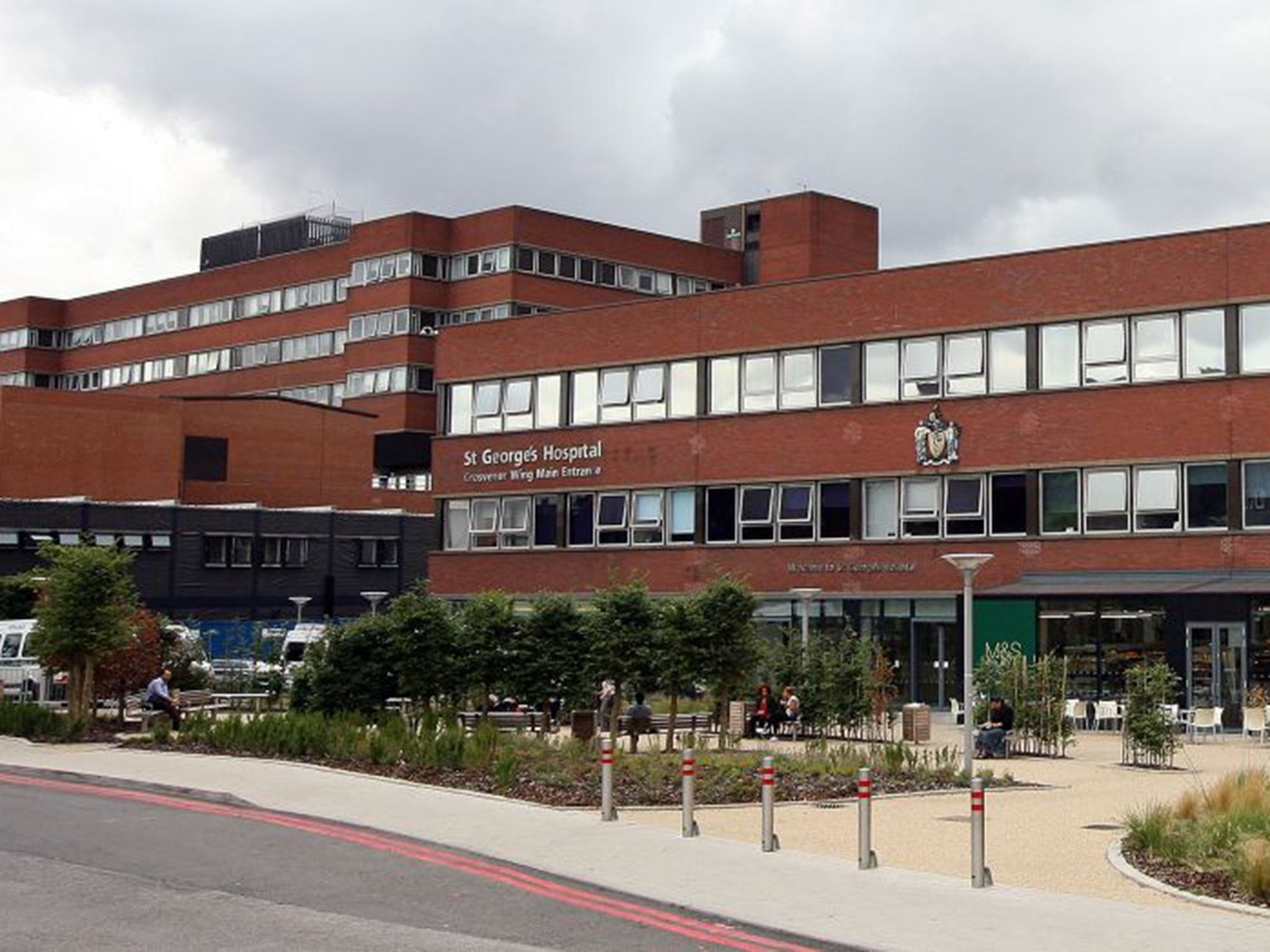NHS teaching hospital featured on Channel 4 series 24 Hours in A&E 'set for deficit of £46m'
Report from independent experts criticises St Geroges University Trust, in which the documentary is set

Your support helps us to tell the story
From reproductive rights to climate change to Big Tech, The Independent is on the ground when the story is developing. Whether it's investigating the financials of Elon Musk's pro-Trump PAC or producing our latest documentary, 'The A Word', which shines a light on the American women fighting for reproductive rights, we know how important it is to parse out the facts from the messaging.
At such a critical moment in US history, we need reporters on the ground. Your donation allows us to keep sending journalists to speak to both sides of the story.
The Independent is trusted by Americans across the entire political spectrum. And unlike many other quality news outlets, we choose not to lock Americans out of our reporting and analysis with paywalls. We believe quality journalism should be available to everyone, paid for by those who can afford it.
Your support makes all the difference.A high-profile NHS teaching hospital that was given Foundation Trust (FT) status early last year, is set to have the second largest deficit of all NHS Trusts in 2015-16, according to a team of independent experts.
St George’s University Hospitals NHS Foundation Trust in south-west London, in which the Channel 4 series 24 Hours in A&E is set, suffers from poor financial controls and a lack of accountability and expertise by managers, the report says. It is heading for a deficit of around £46m in 2015-16, despite being given a clean bill of health by the regulator, Monitor, which assesses hospitals’ financial management and performance before granting coveted FT status.
The FT status was awarded last February, giving financial autonomy. But a few months later accountants from PricewaterhouseCoopers, in a study commissioned to examine the trust’s deteriorating finances, found there were “significant weaknesses” in financial controls, and that management had “failed in their responsibility” to identify them.
The report says that “with better financial and operational information and significantly improved financial management and control, the trust could have identified the drivers for decline earlier and taken more appropriate action”.
It says there was “a failure to understand and control the trust’s cost base” and that managers “missed a number of red flags in pay”, leading to an overspend of £10m on staff, particularly expensive agency staff, and there was also a lack of effective workforce planning. The Trust also failed to deliver all the extra capacity – 169 new beds – planned.

The report says that there was a “lack of ownership and accountability for budgets” by the 371 budget-holders in the trust and “inadequate capability of staff at a number of levels and across divisions”.
In a telling comment, the report says: “It is difficult to understand why the deficiencies in the systems, processes and controls have not been identified prior to this review”.
The report also says that “the lack of performance management culture across the trust means there is little incentive to deliver budgets, nor are there repercussions when they are not delivered”. The report was handed to the trust board in October, but it has not yet published it in full and an executive summary only appeared on its website in January.
A spokesman for St George’s said: “The report acknowledges that operational pressures last year drove increases in costs, and reductions in income for hospitals like St George’s. The board accepted all 75 recommendations for improved systems and financial management.
“Our deficit is reducing and we are taking the action required to return to financial balance. We have worked hard to ensure the savings have not come at the expense of quality and patient experience.”
Monitor has faced criticism before from the all-party House of Commons health committee, which said in a report that the regulator did not have enough staff with NHS experience, either as managers or clinicians, to carry out hospital assessments.
Monitor carried out its own review of how St George’s was granted FT status. Its explanation is that the Trust had given them financial projections which proved to be wrong, and their auditors had based their views on these.
Join our commenting forum
Join thought-provoking conversations, follow other Independent readers and see their replies
Comments